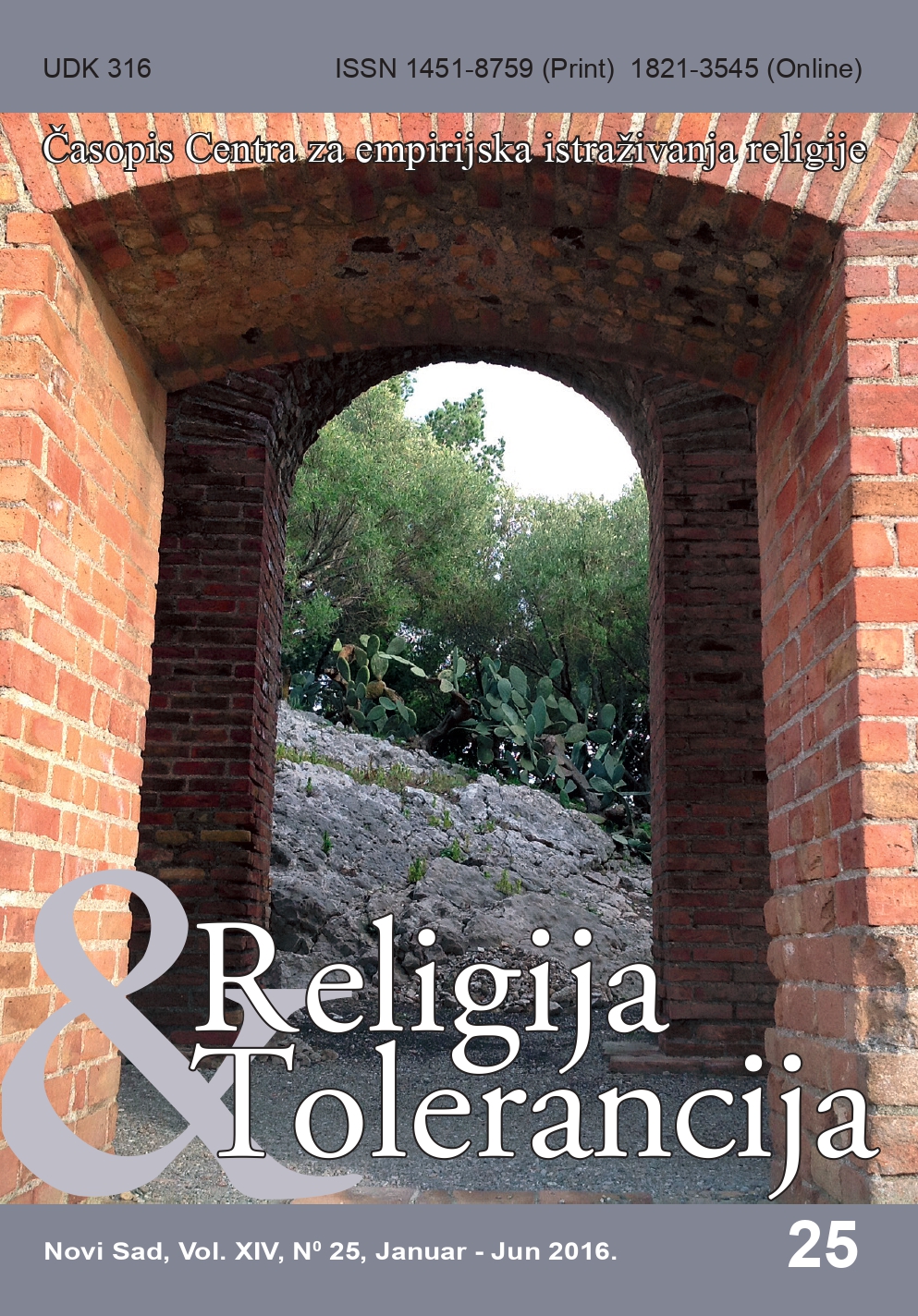RELIGIJSKI IDENTITET I MIGRACIJE: RUMUNI IZ SRPSKOG BANATA U SEVERNOJ AMERICI
RELIGIOUS IDENTITY AND MIGRATION: ROMANIAN FROM THE SERBIAN BANAT IN NORTH AMERICA
Author(s): Aleksandra Djuric Milovanovic, Mircea MăranSubject(s): Theology and Religion, Sociology of Religion
Published by: Centar za empirijska istraživanja religije (CEIR)
Keywords: emigration; Romanians from the Serbian Banat; religious identity; integration; North America
Summary/Abstract: In this paper we have tried to show different aspects of the Romanian emigration from the Serbian Banat, from the perspective of religious migration. The material collected for the purposes of this paper came to be result of ethnographic research of the Romanian neo-Protestant diaspora, based on interviews with pastors from the Serbian Banat and the believers in the United States and Canada and available literature. The paper is divided into two thematic areas. In the first part, we present a brief historical sketch of the Romanians in the Banat region. The second part is devoted to the issues of emigration to overseas countries – the United States and Canada and to the integration of Romanians abroad. The issue of emigration of the Romanians to North America has occupied, so far, a number of researchers who have been trying to explain the reasons for emigration in the recent history. Although the topic of this paper is a special type of migration – religious migration, it cannot be considered in isolation, but only in the broader context of migrations and significance of religion for immigrant communities. Thus, we indicate several stages in Romanian emigration, which are allocated according to the socio-economic and political conditions that prevailed during the twentieth century. Beside Romanians, members of different ethnic groups have emigrated from communist countries of East and South-East Europe to West Europe, North America or Australia. Among them, representatives of different minority religious groups were also present. Belonging to minority religious group that had unrecognized and marginalized status in the home country was one of the reasons for migration – escaping religious oppression. At beginning of the 20th century, after the Romanians from the Serbian Banat joined and formed a large number of local neo-Protestant communities, they found themselves in the position of a double minority – ethnic and religious. As the position of the neo-Protestant communities in different social and political circumstances was unfavorable, some religious groups (such as the Nazarenes), began to emigrate very early on, not only for economic reasons, but mainly in search of religious freedom. By going to the New World, the Romanians joined already existing neo-Protestant or they established new communities, which would greatly affect their integration into the new environment. In a secular society of the United States and Canada, in a variety of different religious communities of Protestant origin, the Romanian neo-Protestants were free to exercise their religious practices with no restraints within the new communities.
Journal: Religija i tolerancija
- Issue Year: 14/2016
- Issue No: 25
- Page Range: 21-38
- Page Count: 18
- Language: Serbian

